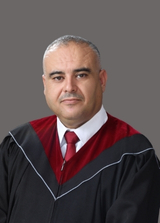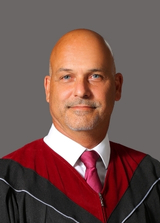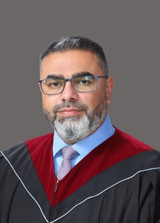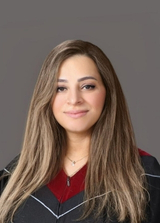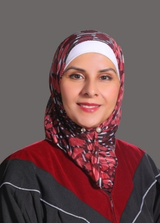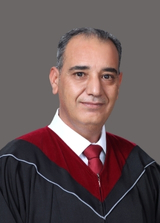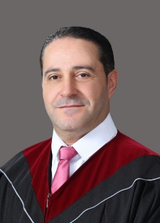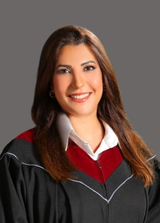About Faculty
Information about the faculty, its vision, and mission.

To achieve excellence in science education, propelling societal progress through the development of skills, critical thinking, and investigative approaches, all while adhering to the highest ethical standards in scientific practices.

The Faculty of Science is committed to delivering enriching educational experiences, emphasizing the cultivation of scientific knowledge, innovation, and research engagement. This dedication is aimed at preparing students to become professionals in their respective fields, equipped with the expertise and critical thinking skills necessary for success.
Dean’s Welcome
Welcome message from the Dean.
Academic Departments
Information about various academic departments.
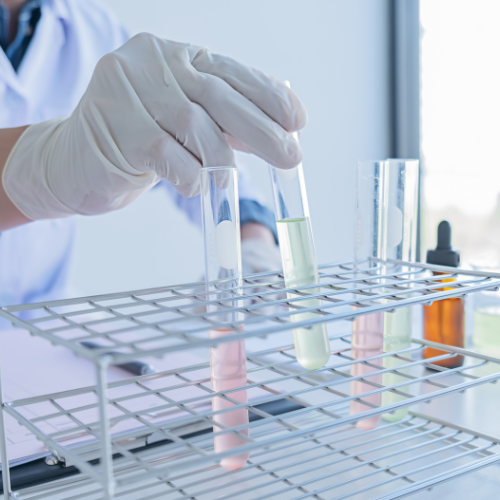
Biology and Biotechnology
The Department of Biology and Biotechnology offers students comprehensive education in the biological sciences and biotechnology, focusing on biochemistry, genetics, molecular biology, micro...
- 134 Credit Hours
- 60 % Minimum Accepted Grade

Basic Science & Humanities
The Department of Basic Science and Humanities oversees the General Education Curriculum, an essential component of the academic journey at AUM. The curriculum is designed to provide student...
Faculty Members & Staff
List and information about faculty members and staff.
Dean of Faculty of Science
Biology and Biotechnology
Basic Science & Humanities
Executive Board
Details about the executive board members.
Facilities & Labs
Information about the facilities and laboratories.
SA-F25: General Chemistry Lab
The General Chemistry Laboratory is a practical learning environment that enhances theoretical knowledge in chemistry. It contains basic equipment such as beakers, burets, pipets, pH meters, conductometers, ovens, natural gas burners, hot plates, and analytical balances. Emphasis is placed on laboratory safety rules, including proper handling of chemicals.
SA-F22: Organic Chemistry Lab
The Organic Chemistry Lab is a specialized environment for studying the synthesis, purification, and analysis of organic compounds. Equipped with tools like reflux setups, rotary evaporators, distillation apparatus, and chromatography systems, it emphasizes the safe handling of chemicals and mastery of techniques such as extraction and crystallization.
SA-F21: Analytical Chemistry Lab
A lab designed for precise chemical analysis, employing advanced techniques such as chromatography, and titration. It supports research and education by enabling the qualitative and quantitative analysis of substances across various fields, including pharmaceuticals, environmental science, and materials science.
SA-G26: General Physics Lab 1
In Physics Lab 1, we utilize a computerized data logging system provided by PASCO Scientific. The lab is equipped with various sensors designed to collect precise experimental data, which is displayed and analyzed using specialized software (DATASTUDIO) on lab computers. The available equipment allows students to conduct hands-on experiments on topics related to General Physics 1, enhancing their understanding, practical skills, and analytical abilities.
SA-G22: General Physics Lab 2
In Physics Lab 2, we utilize advanced experimental setups to explore concepts in electricity and magnetism. The lab is equipped with PASCO Scientific systems, including charge sensors, voltage sensors, current sensors, and magnetic field sensors, as well as circuit boards for studying simple circuits and transformer models. These tools provide hands-on experience to deepen students' understanding and train them in circuit building and measurements.
SA-S25: General Biology Lab
A general-purpose laboratory equipped for basic biological experiments and observations. It includes essential equipment such as centrifuges, microscopes, a water bath, an ice machine, vortex mixers, hot plates, a top-loading balance, and a fume hood.
SA-S15: Botany Lab
Focused on plant biology. It is equipped with light microscopes and dissecting microscopes for detailed plant studies, along with plant models for educational purposes. Additionally, it contains a water bath for temperature-sensitive experiments.
SA-F09: Plant Tissue Culture Lab
Designed for in-vitro plant propagation and plant biotechnology research. It includes an incubator, analytical balance, centrifuge, hot plate stirrer, rocker shaker, laminar flow hood for aseptic work, and pipettes for precision measurements.
SA-S17: Histology and Micro-Techniques Lab
Specializes in tissue preparation and microscopic examination. It is equipped with fume hoods, light microscopes, a tissue processor, an oven, a tissue stainer, a hotplate, a paraffin dispenser, a water bath, and a microtome for sectioning samples.
SA-S16: Genetics Lab
Equipped for studying hereditary patterns, genetic modifications, and model organisms. It contains light and dissecting microscopes for genetic observations, a flies incubator for Drosophila studies, a bacteria incubator for microbial genetics, a fume hood for chemical safety, and a centrifuge for sample preparation.
SA-S14: Zoology Lab
This lab provides comprehensive resources for studying animal anatomy, physiology, and taxonomy. It is equipped with light microscopes and dissecting microscopes for detailed specimen observation, as well as various animal models to support comparative anatomy studies.
SA-S14: Ecology Lab
The Ecology Lab emphasizes fieldwork and experimental ecology, examining interactions within ecosystems. Activities include analyzing soil and water samples, studying species interactions, and understanding ecological principles through real-world applications.
SA-S21: Biochemistry Lab
Designed for both biochemical and clinical analyses, this lab is equipped with a centrifuge, water bath, water distiller, spectrophotometer, pH meter, hot plate, vortex mixer, analytical balance, and clinical chemistry kits. Additionally, a fume hood is provided to ensure safe handling of volatile chemicals.
SA-S08: Molecular Biology Lab
Dedicated to DNA and RNA analysis and protein studies, this lab is equipped with PCR machines, gel electrophoresis systems for DNA/RNA separation, a NanoDrop spectrophotometer, a water bath, hot plate, shaker incubator, centrifuge, pipettes, an analytical balance, vortex mixers, and a microwave.
SA-S04: Microbiology Lab
Equipped for the cultivation and study of microorganisms. It features microscopes, a bacterial incubator, hot plates, a laminar flow hood, inoculating loops, various bacterial media for culturing different microbial species, and a dedicated refrigerator for storing bacterial cultures and media.
SA-F14: Research Lab
Dedicated for research purposes, it iss equipped with an analytical balance, a vacuum controller coupled with a rotary evaporator, a centrifuge for sample separation, a UV gel documentation system, and an oven.
SA-S08: Immunology Lab
Dedicated to DNA and RNA analysis, protein studies, and immunological testing. It includes PCR machines, gel electrophoresis for DNA/RNA separation, a water bath, hot plate, shaker incubator, centrifuge, pipettes, an analytical balance, vortex mixers, and a microwave.
SA-S08: Animal Tissue Culture Lab
Equipped for the cultivation and study of animal cells in vitro. It features a laminar flow hood, a centrifuge for cell separation, a cell incubator, a water bath, and an inverted microscope for observing cell cultures.
SA-S21: Biochemistry and Clinical Biochemistry Lab
Designed for both biochemical and clinical analyses, this lab is equipped with a centrifuge, water bath, water distiller, spectrophotometer, pH meter, hot plate, vortex mixer, analytical balance, and clinical chemistry kits. Additionally, a fume hood is provided to ensure safe handling of volatile chemicals.
Publications & Activities
Information about publications and activities.
Learning Resources
Resources available for learning.
The Faculty of Science provides a comprehensive range of learning resources designed to support students across various scientific disciplines, including Biology, Chemistry, Physics, Mathematics, Environmental Science, Computer Science, and more. Below is a structured list of resources available to students, with categories that can be adapted and expanded to meet the specific needs of each discipline.
Textbooks and Reference Books
-
Core Textbooks:
Primary textbooks are provided for each course to ensure students have access to the most current scientific theories, discoveries, and foundational knowledge. -
Supplementary Books:
Additional resources that delve into alternative explanations or advanced topics not fully covered in core textbooks, offering students a broader perspective on complex subjects. -
Reference Books:
Recommended dictionaries, encyclopedias, and handbooks specific to each discipline, supporting deeper exploration and a richer understanding of scientific terminology and concepts.
Online Resources
-
E-Learning Platforms:
Access to platforms like Moodle, edX, Coursera, and other digital learning environments that offer supplementary courses and self-paced learning options. -
Scientific Journals:
Access to research databases such as PubMed, ScienceDirect, and JSTOR, providing a wealth of peer-reviewed articles and studies that are essential for research and academic exploration in scientific fields.
Laboratory Resources
-
Lab Manuals:
Detailed guides and protocols for laboratory experiments and practicals, supporting hands-on learning and experimentation. -
Safety Guidelines:
Comprehensive resources on laboratory safety practices and protocols, ensuring students are well-informed and prepared to conduct experiments safely. -
Equipment Manuals:
Instructions and troubleshooting guides for laboratory equipment, covering everything from basic lab instruments to advanced scientific apparatus used in biology, chemistry, and physics labs.
Libraries and Archives
-
Digital Libraries:
Access to digital copies of textbooks, scientific journals, and research articles, providing students with convenient access to a vast range of educational materials. -
Special Collections:
Information on rare and specialized documents, historical scientific works, and other unique resources that can support in-depth research and learning.
Study and Research Groups
-
Study Groups:
Opportunities for students to form or join study groups within the faculty, fostering collaborative learning and peer support. -
Research Seminars:
A schedule of seminars, guest lectures, and workshops led by faculty members and visiting experts, providing students with insights into current research and developments in various scientific fields.



